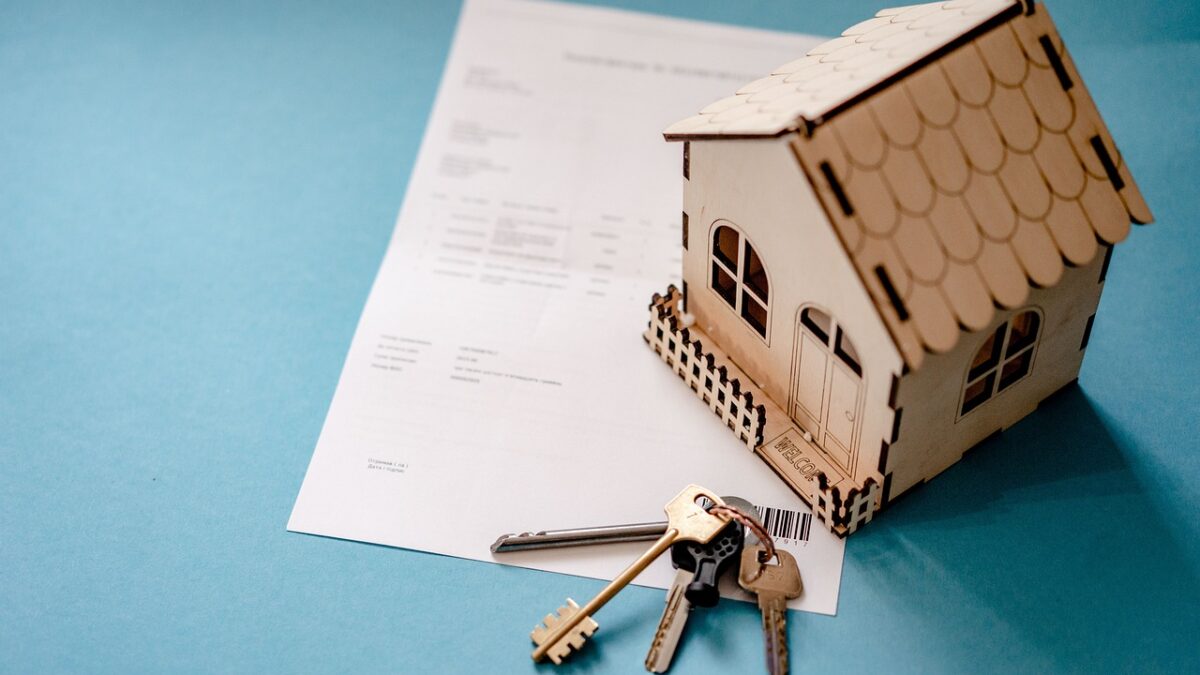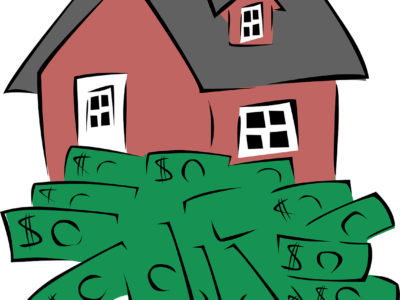
The value of a property is an essential consideration for buyers, sellers, investors, and homeowners alike. It represents the worth of an asset and influences various financial decisions. Understanding what factors affect property values is crucial for making informed choices and maximizing your investment.
In this blog, we will delve into the key elements that shape property values, empowering you to navigate the real estate market with confidence.
Factors that Influence Property Values?
1. Economic Factors
Economic factors play a vital role in determining property values. Here are some key economic factors to consider:
- Interest Rates: Interest rates have a direct impact on the affordability of mortgages and financing options. When rates are low, it becomes affordable for buyers to obtain mortgages, increasing demand and potentially driving up property values.
On the other hand, high interest rates can make it more challenging for buyers to secure financing, potentially leading to a decrease in demand and property values.
- Employment and Income Levels: The employment rate and income levels within a region significantly influence property values. Areas with robust job markets, high-paying industries, and a thriving economy tend to attract more buyers. This results in increased demand and higher property values.
Conversely, regions with high unemployment rates or stagnant income growth may influence lower demand and potentially lower property values.
- Inflation and Cost of Living: Inflation and the overall cost of living in an area have a huge impact on property values. When the cost of living rises, it can drive up property values as buyers seek to maintain their standard of living.
On the contrary, in areas with lower inflation and a more affordable cost of living, property values may be more stable or even decrease.
2. Location and Neighborhood
Location is a critical factor that significantly influences property values. Here are some key considerations:
- Proximity to Amenities: Properties located near desirable amenities such as shopping centers, restaurants, entertainment venues, parks, and recreational facilities tend to have higher values.
Buyers are often willing to pay a premium for the convenience and lifestyle these amenities offer.
- School Districts: The quality of local schools is a crucial factor for families with children. Properties located in top-rated school districts tend to command higher values, as parents prioritize providing their children with quality education.
- Neighborhood Characteristics: The overall character and reputation of a neighborhood can impact property values.
Factors such as safety, crime rates, property maintenance, and community involvement can influence buyer perceptions and, consequently, property values.
3. Property Size and Condition
The physical characteristics of a property play a significant role in determining its value. Here are some key factors to consider:
- Square Footage: Generally, larger properties tend to have higher values than smaller properties, assuming all other factors are constant.
However, it’s important to consider the efficient use of space and the layout’s functionality.
- Number of Bedrooms and Bathrooms: Properties with more bedrooms and bathrooms typically command higher values, as they accommodate larger families or offer additional living spaces.
- Property Condition: The overall condition of a property, including age, maintenance, and any necessary repairs or renovations, can significantly impact its value.
Well-maintained properties in good condition tend to fetch higher prices than those requiring extensive repairs or renovations.
4. Amenities and Other Features
Certain amenities and features can enhance a property’s appeal and potentially increase its value. Here are some examples:
- Outdoor Spaces: Properties with desirable outdoor spaces, such as decks, patios, gardens, or swimming pools, can command higher values, as they provide additional living and entertainment areas.
- Energy Efficiency: Energy-efficient features like solar panels, high-efficiency heating and cooling systems, and proper insulation can make a property more attractive to buyers and potentially increase its value, as they offer long-term cost savings and environmental benefits.
- Smart Home Technology: Properties equipped with smart home technology, such as automated lighting, climate control, and security systems, can be more appealing to tech-savvy buyers, potentially increasing their values.
5. Infrastructural Development
The infrastructure and development in the surrounding area can significantly impact property values. Consider the following factors:
- Transportation Infrastructure: Properties located near well-developed transportation infrastructure, such as highways, public transportation systems, and airports, tend to have higher values due to improved accessibility and convenience.
- Planned Developments: Upcoming developments, such as new shopping centers, parks, or community facilities, can positively impact property values in the surrounding areas, as they enhance the overall desirability of the location.
- Urban Renewal Projects: Areas undergoing urban renewal or revitalization projects can experience an increase in property values as the neighborhood becomes more attractive and desirable to potential buyers.
6. Environmental Factors
Environmental factors can significantly influence property values, both positively and negatively. The following are some of the environmental factors that affect property values:
- Air and Water Quality: Properties located in areas with poor air or water quality may have lower values due to potential health concerns and reduced desirability.
- Natural Disasters: Properties in areas prone to natural disasters, such as earthquakes, floods, and wildfires, may have low values due to the associated risks and potential for damage.
- Noise Pollution: Properties located near sources of noise pollution, such as airports, highways, or industrial areas, may have lower values due to the reduced quality of life and potential disturbances.
7. Demographics
The demographic characteristics of a region can impact property values in various ways. Consider the following factors:
- Population Growth: Areas experiencing high population growth tend to have higher property values due to increased demand for housing and limited supply.
- Age Distribution: Regions with a higher concentration of younger families or retirees may have different housing preferences, influencing property values accordingly.
- Income Levels: Properties in regions with higher average income levels tend to have higher values, as residents have greater purchasing power and can afford more expensive homes.
8. Market Demand
Market demand plays a critical role in determining property values. Here are some of the market demand factors that affect the values of properties:
- Demand and Supply: When the demand for properties in an area exceeds the available supply, property values tend to rise.
On the contrary, an oversupply of properties can lead to a decrease in value.
- Buyer Preferences: Changing buyer preferences, such as a shift towards urban living or a preference for larger homes, can influence demand and, consequently, property values in specific areas.
- Investor Activity: Areas with high investor activity, such as those popular for vacation homes or rental properties, may experience fluctuations in property values due to changes in investment trends.
9. Government Policies
Government policies and regulations significantly influence property values. Here are some of the government policies affecting property values:
- Zoning Laws: Zoning laws dictate the permitted uses of land and properties within a specific area.
Changes in zoning laws can influence property values by affecting the potential uses and development opportunities.
- Tax Rates: Property tax rates can influence property values, as higher tax rates can make owning a property more expensive and potentially deter buyers.
- Development Regulations: Regulations governing development, such as building codes, environmental regulations, and permit requirements, can impact property values by affecting the cost and feasibility of construction or renovation projects.
10. Seasonal and Cyclical Factors
Property values can be influenced by seasonal and cyclical factors. Here are some of these factors:
- Seasonal Fluctuations: In many markets, property values tend to fluctuate throughout the year, with peak periods (e.g., spring and summer) and slower periods (e.g., winter).
These fluctuations can be driven by factors such as weather, school schedules, and buyer preferences.
- Real Estate Cycles: The real estate market tends to follow cyclical patterns, with periods of growth, stability, and decline.
Understanding these cycles can help buyers and sellers make informed decisions about when to enter or exit the market.
- Economic Cycles: Property values can be influenced by broader economic cycles, such as recessions or periods of economic growth.
During economic downturns, property values may decline, while periods of economic prosperity lead to increased property values.
How to Assess Property Values
The following are some of the methods and resources that you can use to accurately assess property values:
1. Comparative Market Analysis (CMA)
A CMA involves analyzing recent sales of similar properties in the same area to estimate the value of your property.
You can seek a detailed CMA report from real estate professionals.
2. Online Valuation Tools
Various online platforms and real estate websites offer property valuation tools that use algorithms and data to estimate property values based on factors such as location, size, and recent sales.
3. Professional Appraisal
Hire a licensed and experienced real estate appraiser to get a comprehensive and objective assessment of your property’s value.
Appraisers consider factors such as real estate market trends, property characteristics, and comparable sales.
Conclusion
Understanding what factors affect real estate values is crucial for making informed decisions in the real estate market.
From economic conditions and location to property characteristics and government policies, numerous elements shape the value of a property.
By considering these factors, you can better assess the current and potential value of a property, make strategic investment decisions, and navigate the real estate market with confidence.
If you’re considering buying, selling, or investing in a property, it’s important to have a comprehensive understanding of the factors that influence property values.
Our team of experienced real estate professionals is here to guide you through the process and provide valuable insights tailored to your specific needs.
Contact us today to schedule a consultation and take the first step toward making informed decisions about your real estate investments.










